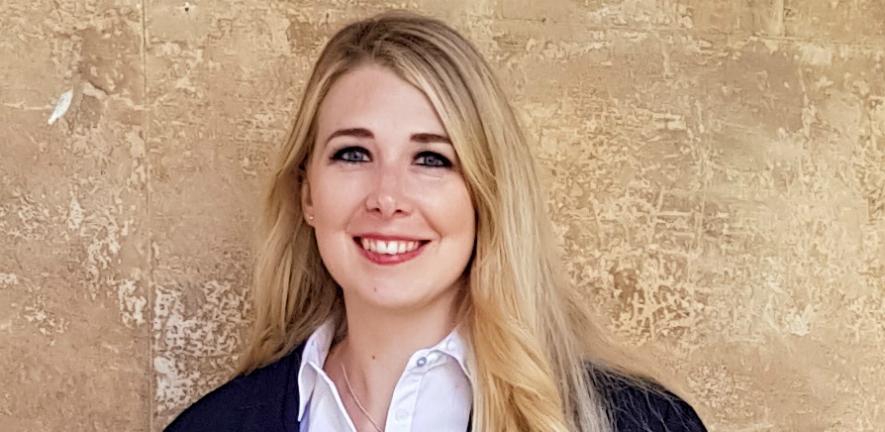
Submitted by Jane Durkin on Tue, 26/05/2020 - 12:19
Mandy Wigdorowitz is a PhD candidate in Theoretical and Applied Linguistics. She is researching the psycholinguistic and cognitive effects of language experience in multilinguals with a focus on language and interaction from linguistic, social, cognitive and psychological perspectives. In addition to her doctoral research, she is a registered Research Psychologist with the Health Professions Council of South Africa and an Executive Member of the Division for Research and Methodology of the Psychological Society of South Africa.
Mandy will present her work on the importance of contextual linguistic diversity in a holistic measure of language experience at the Cambridge Language Sciences Symposium for Early-Career Researchers on 18 June 2020.
My default tendency to reply with a “yes” when presented with an academic, self-improvement, or impacting opportunity has largely contributed to me being a first-generation university graduate from Johannesburg, South Africa making it all the way to the University of Cambridge. Of all the opportunities I have sought out and have said yes to, I am immensely fortunate to have pursued this particular one: holding a place as a PhD student at the University of Cambridge, St John’s College. The journey, as you can imagine, has many ups and downs, but it has been the most worthwhile one.
I started my PhD in 2018 in the section of Theoretical and Applied Linguistics with scholarships from the Commonwealth Scholarship Commission and the Cambridge Trust. My background is in psychology – I registered as a Research Psychologist with the Health Professions Council of South Africa after completing an MA in Social and Psychological Research – but my research area is in the language sciences more broadly, so completing a PhD in the linguistics department was a fairly easy, albeit daunting, transition.
If I had to summarise my research, it’s to investigate the effects of language experience (e.g. through the social context, home environment, education, and print exposure) in multilingual young adults in tertiary education in countries where English is the lingua franca, but may not be a first language for participants. I’m investigating proficiency, vocabulary, reading comprehension and inference making. I’m also particularly interested in language profiling and have developed a questionnaire that captures useful information about individual’s language knowledge, contextual linguistic diversity, reading and writing habits, and socio-economic status – the Contextual Linguistic Profile Questionnaire (CLiP-Q). My research aims to understand language and interaction from linguistic, social, cognitive and psychological perspectives.
I believe it’s important to contribute to the academy and community beyond the work I do for my PhD alone. In my voluntary role as an Executive Member for the Division for Research and Methodology of the Psychological Society of South Africa for over four years, I promote multi-disciplinary collaboration, innovative learning and teaching of research methods and practices, and have encouraged discourse and debate within the a community of scholars. I have also recently become a University of Cambridge Data Champion and the Assistant Editor of the Journal of Open Humanities Data.
Academic study has empowered me to break boundaries and be the person I was always meant to be. I hope to continue saying yes to all the wonderful opportunities that come my way by contributing to the language sciences through continuous and impactful research across diverse contexts in and beyond the Global North.
